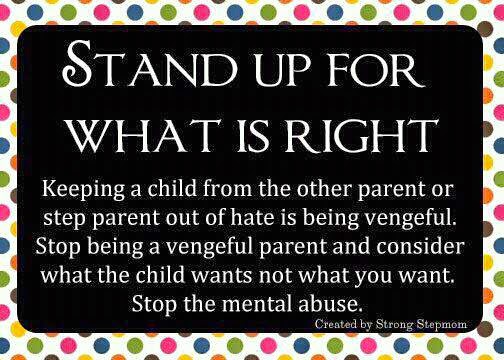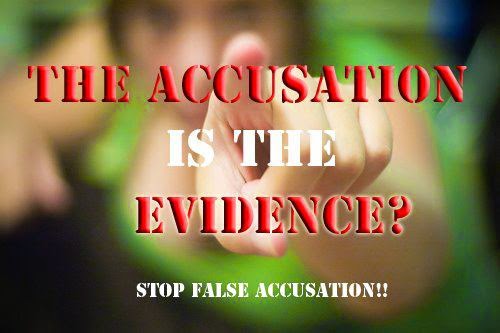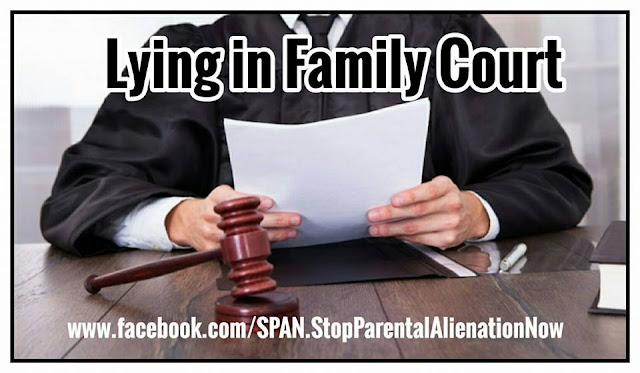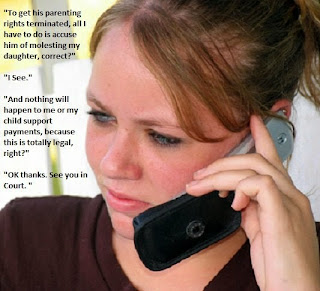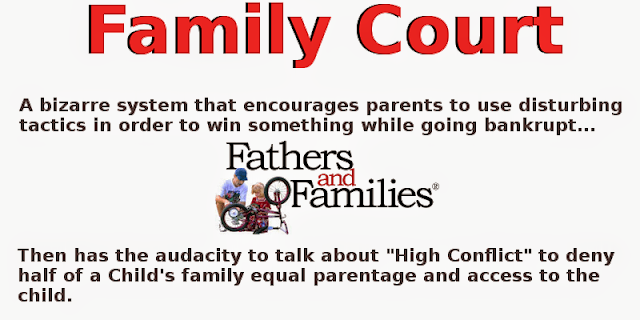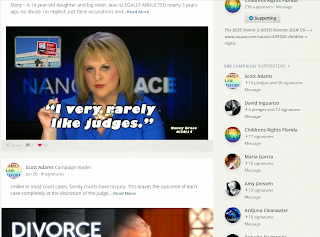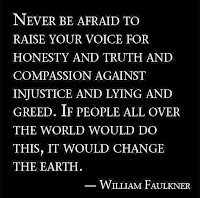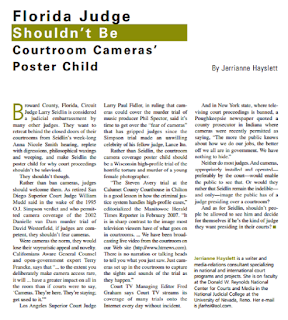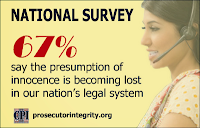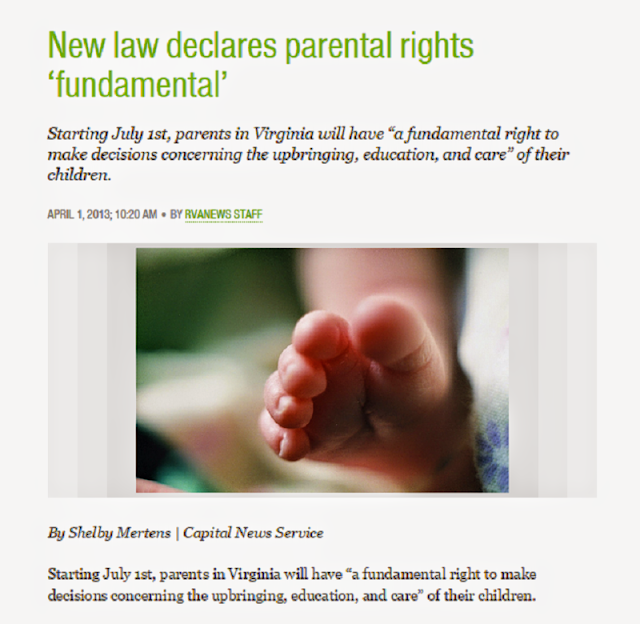Is the Horror of False Accusation More Urgent and Credible when Harvard Law Prof Alan Dershowitz Describes It?
Reblogged on WordPress.com Source: Is the…
CIVIL RIGHTS IN FAMILY LAW FLORIDAAbout False accusation
CIVIL RIGHTS IN FAMILY LAW FLORIDAAbout False accusation
·
False accusations (or groundless accusations or unfounded accusations or false allegations or false claims) can be in any of the following contexts:
- Informally in everyday life.
- Quasi-judicially
- Judicially.
Types
When there is insufficient supporting evidence to determine whether an accusation is true or false, it is described as "unsubstantiated" or "unfounded". Accusations that are determined to be false based on corroborating evidence can be divided into three categories:
- An allegation that is completely false in that the events that were alleged did not occur;
- An allegation that describes events that did occur, but were perpetrated by an individual who is not accused, and in which the accused person is innocent.
- An allegation that is partially true and partially false, in that it mixes descriptions of events that actually happened with other events that did not occur.
A false allegation can occur as the result of intentional lying on the part of the accuser; or unintentionally, due to a confabulation, either arising spontaneously due to mental illness or resulting from deliberate or accidental suggestive questioning, or faulty interviewing techniques. Researchers Poole and Lindsay suggested in 1997 applying separate labels to the two concepts, proposing the term "false allegations" be used specifically when the accuser is aware they are lying, and "false suspicions" for the wider range of false accusations in which suggestive questioning may have been involved.
Rape
Main article: False accusation of rape
The statistics on false accusations of rape vary widely, from 2% to Eugene Kanin's (1994) figure of 41%, which derived from a case study of a police agency in a metropolitan city in the Midwest. John Bancroft states that a search of the literature on false rape reports reveals that Kanin's figure of 41% false rape reports is regarded as unusually high. FBI statistics for the annual rate of false reporting of forcible assault across the country have been a consistent 8%. A study from the UK found that of the approximately 14,500 cases of rape reported in 2005/2006 9% were classified as false allegations.
Child abuse
Main article: False accusations of child sexual abuse
A false allegation of child sexual abuse is an accusation that a person committed one or more acts of child sexual abuse when in reality there was no perpetration of abuse by the accused person as alleged. Such accusations can be brought by the victim, or by another person on the alleged victim's behalf. Studies of child abuse allegations suggest that the overall rate of false accusation is under 10%, as approximated based on multiple studies. Of the allegations determined to be false, only a small portion originated with the child, the studies showed; most false allegations originated with an adult bringing the accusations on behalf of a child, and of those, a large majority occurred in the context of divorce and child-custody battles.
Workplace bullying
Main article: Workplace bullying
Research by the Workplace Bullying Institute, suggests that "falsely accused someone of 'errors' not actually made" is the most common of all bullying tactics experienced, in 71 percent of cases.
Workplace mobbing
Main article: Workplace mobbing
Workplace mobbing can be considered as a "virus" or a "cancer" that spreads throughout the workplace viagossip, rumour and unfounded accusations.
Münchausen syndrome by proxy
Main article: Münchausen syndrome by proxy
The case has been made that diagnoses of Münchausen syndrome by proxy, that is harming someone else to get attention for yourself, are often false or highly questionable.
Stalking
In 1999, Pathe, Mullen and Purcell wrote that popular interest in stalking was promoting false claims. In 2004, Sheridan and Blaauw said that they estimated that 11.5% of claims in a sample of 357 reported claims of stalking were false.
Narcissistic rage
Main article: Narcissistic rage
Rage by a narcissist is directed towards the person that they feel has slighted them. This rage impairs their cognition, therefore impairing their judgment. During the rage, they are prone to shouting, fact distortion and making groundless accusations.
Psychological projection
Main article: Psychological projection
Psychological projection can be established as a means of obtaining or justifying certain actions that would normally be found atrocious or heinous. This often means projecting false accusations, information, etc., onto an individual for the sole purpose of maintaining a self-created illusion.
See also
References
- ^ Ney, T (1995). True and False Allegations of Child Sexual Abuse: Assessment and Case Management. Psychology Press. pp. 23–33. ISBN 0-87630-758-6.
- ^ Mikkelsen EJ, Gutheil TG, Emens M (October 1992). "False sexual-abuse allegations by children and adolescents: contextual factors and clinical subtypes". Am J Psychother 46 (4): 556–70. PMID 1443285.
- ^ Maggie Bruck; Ceci, Stephen J (1995). Jeopardy in the Courtroom. Amer Psychological Assn. ISBN 1-55798-282-1.
- ^ Irving B. Weiner; Donald K. Freedheim (2003). Handbook of Psychology. John Wiley and Sons. pp. 438. ISBN 0-471-17669-9.
- ^ Sexual development in childhood By John Bancroft
- ^ Cybulska B (July 2007). "Sexual assault: key issues". J R Soc Med 100 (7): 321–4.doi:10.1258/jrsm.100.7.321. PMC 1905867. PMID 17606752.
- ^ Hobbs, CJ; Hanks HGI; Wynne JM (1999). Child Abuse and Neglect: A Clinician's Handbook. Elsevier Health Sciences. pp. 197. ISBN 0-443-05896-2.
- ^ Schetky, DH; Green AH (1988). Child Sexual Abuse: A Handbook for Health Care and Legal Professionals. Psychology Press. pp. 105. ISBN 0-87630-495-1.
- ^ Bolen, RM (2001). Child Sexual Abuse: Its Scope and Our Failure. Springer. pp. 109. ISBN 0-306-46576-0.
- ^ Robin, M (1991). Assessing Child Maltreatment Reports: The Problem of False Allegations. Haworth Press. pp. 21–24. ISBN 0-86656-931-6.
- ^ Top 25 workplace bullying tactics - Workplace Bullying Institute
- ^ Shallcross, L, Ramsay, S, & Barker M, (2008)
- ^ Dr Helen Hayward-Brown False and Highly Questionable Allegations of Münchausen syndrome by proxy - presented to the 7th Australasian Child Abuse and Neglect Conference in Perth 1999
- ^ M Pathe, PE Mullen, R Purcell; Stalking: false claims of victimisation; British Journal of Psychiatry 174: 170-172 (1999)[1]
- ^ L. P. Sheridan, E. Blaauw; Characteristics of False Stalking Reports; Criminal Justice and Behavior, Vol. 31, No. 1, 55-72 (2004) doi:10.1177/0093854803259235 [2]
- ^ Thomas D Narcissism: Behind the Mask (2010)
- ^ R. Appignanesi ed., Introducing Melanie Klein (Cambridge 2006) p. 115 and p. 126
Further reading
- Epstein H Attorneys' Remedies against False Accusations of Unethical Practices;
- Greene N False Accusations: Guilty Until Proven Innocent (2011)
- Jacobson A False Accusations (2001)
- Morse E True crimes and false accusations (1998)
- Ṭullāb Ā Slave trade in Sudan: allegation and false accusations (1999)
- Vachss AH False Allegations (1997)
